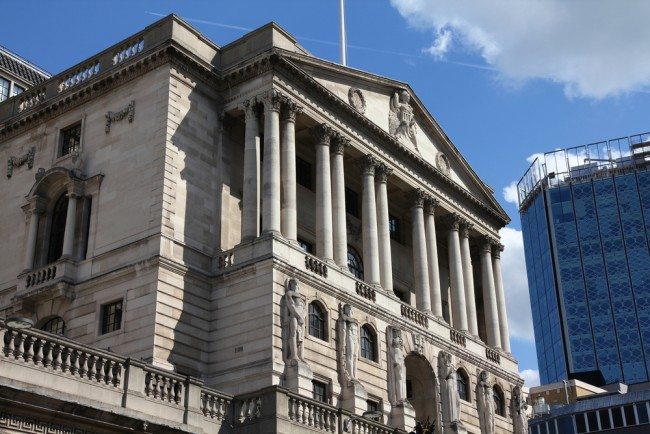In a response to an inquiry submitted under the Freedom of Information Act, it said that taxable benefits incurred by Sir David Lees, the former non-executive chairman of the Bank’s court, and Lady Susan Rice and Michael Cohrs, both former non-executive directors, were £16,509 higher than previously stated and now come to £31,967.
The Times reports that this figure is for 2013-14 and includes relevant tax liabilities. The Bank, which will pay the taxes, spotted the error and alerted Revenue & Customs.
It has not yet made up the difference but is in contact with HMRC and will do so imminently and will not have to face any penalties for the error.
These were travel and accommodation expenses incurred by the directors to attend meetings at the Bank. The three individuals in question, who have all since left, are understood to live some distance from London, where the meetings are held, and took trains and occasionally stayed in hotels.
When Mark Carney took over from Sir Mervyn King in 2013 as the Bank’s governor, he began a radical reform of the 320-year-old institution and hired McKinsey, the US consultancy to carry out a review to help to create a central bank for the 21st century.
After receiving the report by McKinsey, he said that the Bank would now be guided by its new mission statement — “promoting the good of the people of the United Kingdom by maintaining monetary and financial stability”.
The failure to pay the correct amount of tax is not the only incident to cause Threadneedle Street embarrassment over the past few months. In May it accidentally released to The Guardian newspaper its plans for a secret task force known as Project Bookend to prepare for a possible Brexit.
In the email, officials were advised that, if asked, they should tell journalists that the Bank was not preparing for the instance of Britain leaving the European Union and that only a handful of people at the Bank should know about the task force.
The message stated that such questions should be answered with the response “that there is a lot going on in Europe in the next couple of months — pointing to some of the specific European economic issues (eg, Greece) that would be of concern to the Bank”. Asked how the Bank made such an embarrassing mistake over taxing directors’ costs, it said last night: “The reimbursement of such expenses is in accordance with the Bank’s expenses policy relating to non-executive directors, some of whom travel a considerable distance to perform their role.
“There was a classification error in the previous annual report, identified during an internal tax review in late 2014. Some costs had been treated as qualifying business travel, whereas under current HMRC guidelines they should have been treated as a taxable benefit. This was corrected and included within the remuneration report as taxable benefits in the prior year, grossed up for the tax payable.”
The Bank’s court of directors, its supervisory body, acts as a unitary board, setting the organisation’s strategy and budget. It is required to meet a minimum of seven times a year and has four executive members from the Bank and nine non-executive members.
Last year, Anthony Habgood,former chairman of Whitbread, replaced Sir David as chairman of the court. The governor serves on the Bank’s court for a period of eight years, the deputy governors for five years, and the non-executive members for three years.


